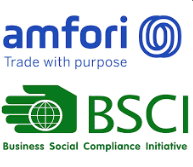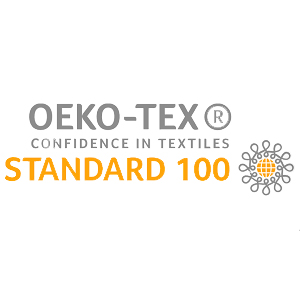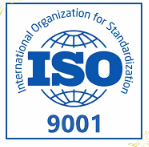What Sustainable Practices Are Implemented by Lingerie Manufacturers in Their Processes?
What Sustainable Practices Are Implemented by Lingerie Manufacturers in Their Processes?
Introduction
Sustainable practices have become a vital aspect of manufacturing processes across various industries, including lingerie. As consumer awareness grows regarding environmental and social issues, lingerie manufacturers are increasingly adopting sustainable methods to reduce their environmental footprint and promote ethical production. This article explores the sustainable practices implemented by lingerie manufacturers and highlights their benefits for both the industry and consumers.
1. Using Organic and Recycled Fabrics
One significant sustainable practice adopted by lingerie manufacturers is the use of organic and recycled fabrics. Traditional lingerie materials, such as synthetic fibers like nylon and polyester, are derived from non-renewable resources, which has a detrimental impact on the environment. However, many lingerie manufacturers have now shifted towards using organic fabrics made from natural fibers, such as organic cotton or bamboo. These fibers are grown without the use of harmful pesticides and insecticides, reducing water and soil pollution. Additionally, some lingerie manufacturers are incorporating recycled materials, including fabrics derived from post-consumer waste, into their production processes. This not only helps in waste reduction but also reduces the need for virgin materials.
2. Implementing Energy-efficient Manufacturing Techniques
Lingerie manufacturers are increasingly adopting energy-efficient manufacturing techniques to reduce their carbon footprint. By implementing energy-saving measures, such as using energy-efficient machinery and optimizing production processes, manufacturers can significantly reduce energy consumption during production. This includes utilizing advanced technologies that use less energy while maintaining product quality. Moreover, manufacturers are also investing in renewable energy sources, such as solar panels, to power their operations. These sustainable practices not only help in reducing greenhouse gas emissions but also contribute to long-term cost savings.
3. Implementing Water Conservation Measures
Water usage is a significant concern in the textile industry, and lingerie manufacturers are taking steps to conserve water during their processes. By implementing water-saving techniques such as low-flow plumbing fixtures, recycling and reusing water, and installing more efficient machinery, manufacturers can significantly reduce their water consumption. Furthermore, manufacturers are also exploring innovative dyeing and washing techniques that require less water while still producing high-quality garments. Implementing these water conservation practices helps preserve this precious resource and reduces the pollution resulting from wastewater discharge.
4. Ethical Labor Practices and Fair Trade
Sustainable lingerie manufacturing goes beyond environmental aspects. It encompasses ethical labor practices and fair trade principles. Recognizing the importance of fair wages, safe working conditions, and eliminating child labor, responsible lingerie manufacturers prioritize the well-being and rights of their workers. This means establishing transparent supply chains, ensuring fair compensation for all workers involved, and conducting regular audits to monitor compliance. Some lingerie manufacturers even collaborate with nonprofit organizations to support local communities, providing social and educational programs for employees and their families.
5. Packaging and Supply Chain Sustainability
Lingerie manufacturers are incorporating sustainable practices into their packaging and supply chain processes. They are shifting towards using eco-friendly packaging materials, such as recycled cardboard boxes or biodegradable plastic alternatives, to minimize waste. Additionally, manufacturers are optimizing their supply chains by partnering with local suppliers, reducing transportation distances and carbon emissions. By embracing sustainable packaging and supply chain practices, lingerie manufacturers can create a holistic approach to sustainability, ensuring that their commitment to the environment extends beyond their products.
Conclusion
With sustainability becoming an increasingly important aspect of consumer decision-making, lingerie manufacturers are taking significant steps to implement sustainable practices in their production processes. By using organic and recycled fabrics, adopting energy-efficient techniques, conserving water, promoting ethical labor practices, and incorporating sustainable packaging and supply chains, lingerie manufacturers are reducing their overall environmental impact. These practices not only benefit the environment but also contribute to the creation of a more conscious and responsible industry. As consumers, choosing lingerie produced through sustainable practices empowers us to support an industry that prioritizes both our well-being and the health of our planet.
Shantou Ladymate Apparel Co., Ltd. is committed to fulfill the demands of our customers with using nursing Bras.
Helping our customers manage document workflow and increase efficiency through best-in-class custom swimsuits and services. Fostering the growth and development of our employees.
Shantou Ladymate Apparel Co., Ltd. is an expert in manufacturing a wide range of . We also have high quality good plus size underwear and many others. Visit to know more.
The team of engineers and developers at Shantou Ladymate Apparel Co., Ltd. are the best in their own way and we promise to provide timely service to our esteemed clients.
sexy sportswear are raising the stakes of social marketing, but they also ease the sales process by providing ways for plus size cotton briefs to effectively interact with customers.












